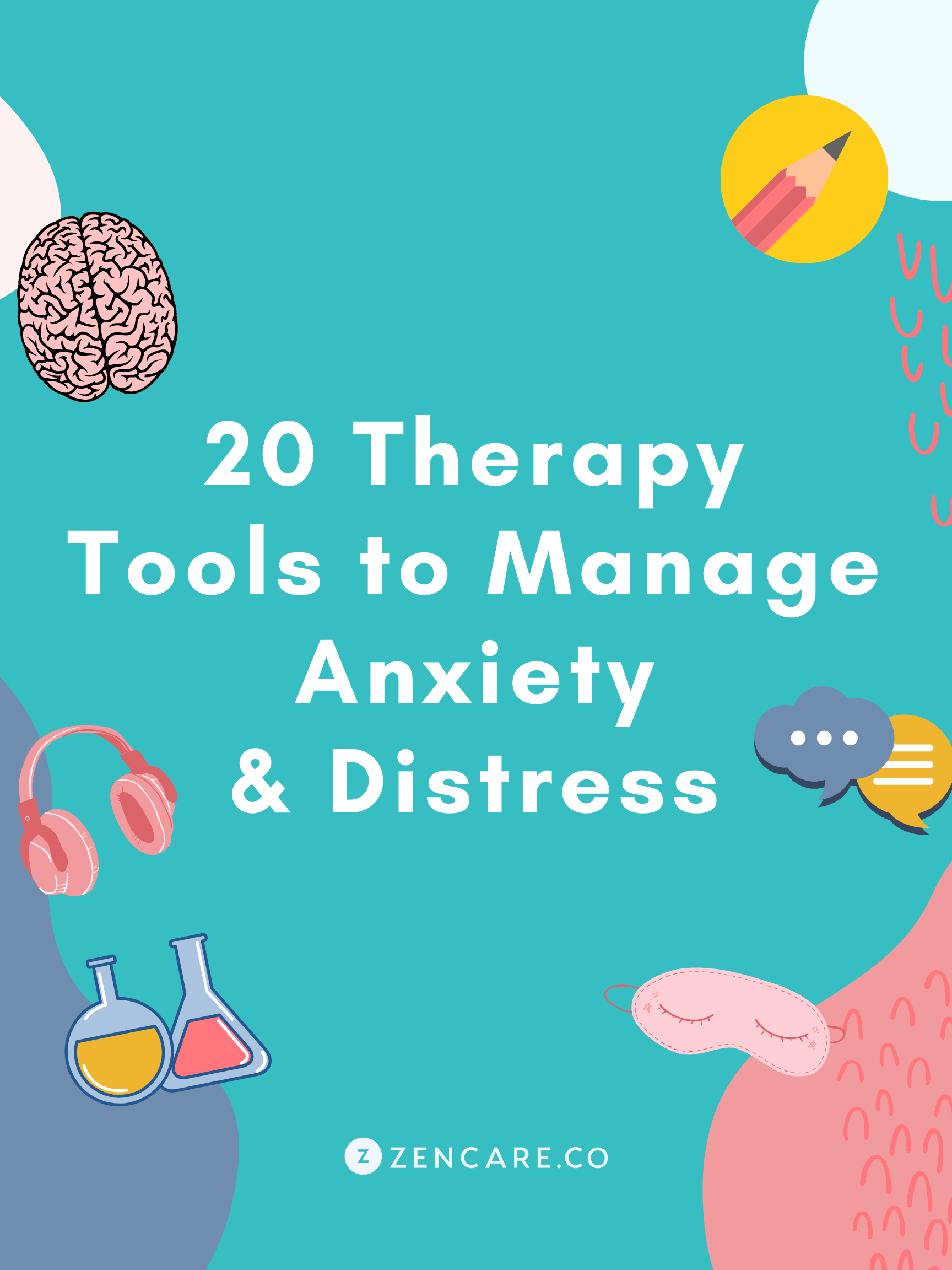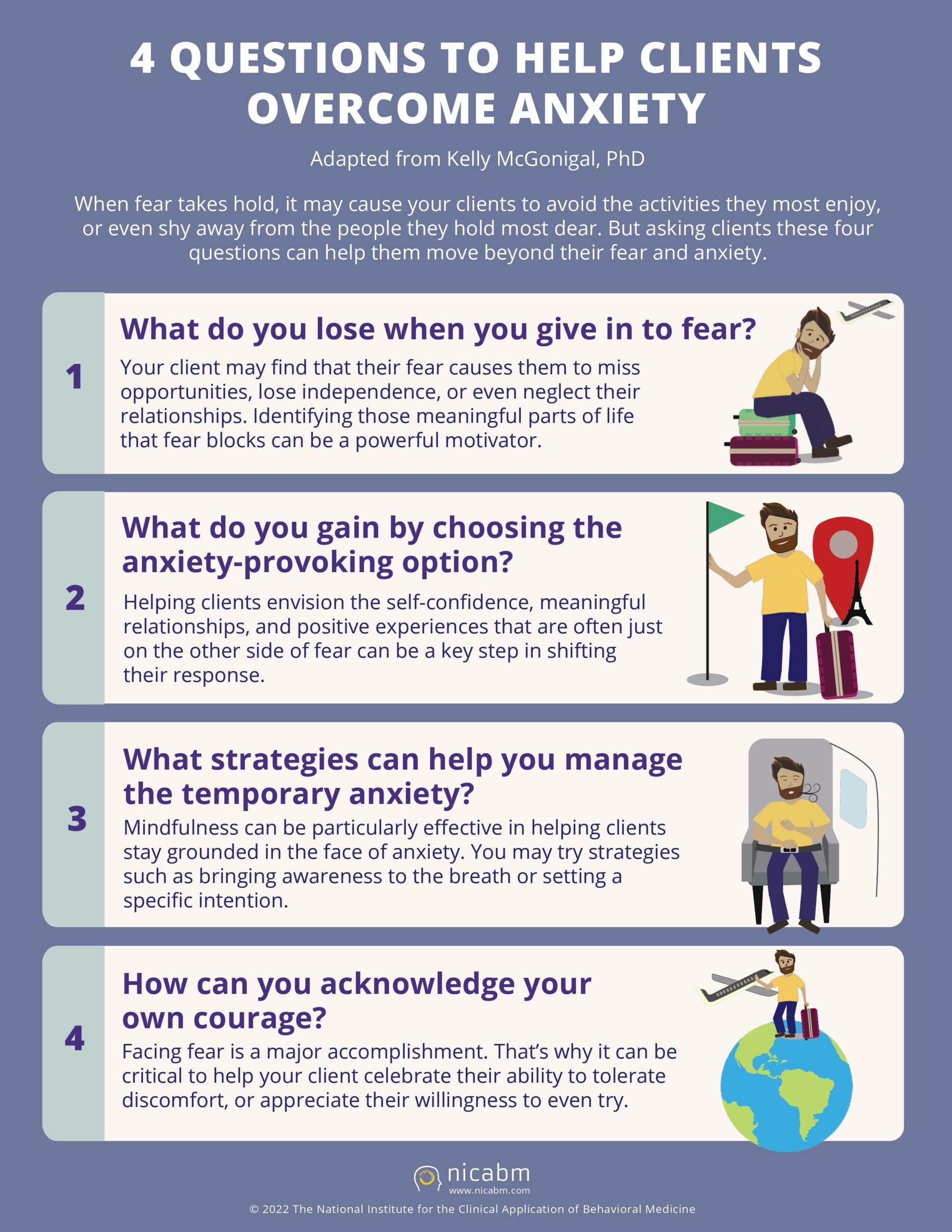Trusted counselling for anxiety disorder support by qualified therapists
Trusted counselling for anxiety disorder support by qualified therapists
Blog Article
Checking Out Different Techniques in Therapy for Anxiousness Problem for Enduring Modification
When taking on stress and anxiety disorders, it's crucial to discover a selection of therapy strategies. Each technique provides distinct understandings and devices to help you manage your signs and symptoms efficiently. You may locate that combining methods can produce the very best outcomes. Recognizing the subtleties of these methods is essential to fostering long-term adjustment. What if the ideal combination could launch a brand-new level of psychological well-being for you?
Recognizing Anxiousness Problems: A Quick Summary
Anxiousness disorders, which affect countless people worldwide, can significantly influence life. You might experience overwhelming feelings of concern or worry that appear unmanageable. These sensations can result in physical symptoms like a racing heart, sweating, and even dizziness. Common kinds of stress and anxiety problems consist of generalized anxiety disorder, panic disorder, and social anxiousness problem. Each has special indications, but they all share a tendency to disrupt your routine and relationships.Understanding the source of your stress and anxiety is vital. It might come from genes, brain chemistry, or life experiences. Acknowledging your triggers can aid you handle your reactions better. It is necessary to bear in mind that you're not the only one in this battle. Many individuals deal with similar obstacles, and seeking help is a solid step towards feeling better. By discovering regarding anxiety conditions, you're currently on the path to understanding and managing your problem more effectively.
Cognitive-Behavioral Treatment: Testing Adverse Thought Patterns
In Cognitive-Behavioral Therapy, you'll begin by determining the negative thought triggers that add to your anxiety. As soon as you acknowledge these ideas, you'll deal with replacing them with more positive options. With each other, you'll build effective coping techniques to assist handle your anxiousness in day-to-day scenarios.
Determining Negative Thought Triggers

When you run into moments of distress, recognizing the specific triggers behind your unfavorable thoughts can be important in handling anxiousness. Start by taking note of situations that provoke sensations of fear or worry. Is it a crowded area, a future due date, or a discussion with specific individuals? Write down these circumstances in a journal. This will aid you identify patterns in your reasoning. Additionally, notice physical experiences that accompany your unfavorable ideas, like an auto racing heart or tightness in your chest. By identifying these triggers, you get insight right into what's fueling your stress and anxiety. Understanding these links is the initial action in challenging those thoughts and eventually gaining back control over your psychological actions.
Replacing Ideas With Positives
Challenging adverse idea patterns is a vital action in changing your attitude and minimizing stress and anxiety. You might commonly find yourself caught in cycles of insecurity or catastrophic thinking. As opposed to allowing these thoughts determine your feelings, practice replacing them with realistic options or favorable affirmations. When you believe, "I can not manage this," change it to, "I can manage obstacles one step at a time." This basic adjustment can considerably influence your mood. Frequently recognizing and responding to these negative thoughts helps produce a much healthier interior discussion. Keep in mind, it takes time and initiative, yet consistently exercising this strategy can cause lasting modification, empowering you to face anxiety with renewed confidence and resilience.
Building Coping Strategies Together
Changing negative ideas is just the beginning of handling anxiousness effectively. To develop long-term adjustment, you need to develop coping methods that equip you. Cognitive-Behavioral Therapy (CBT) helps you identify and challenge those purposeless idea patterns. Together, you and your counselor can discover just how these ideas effect your feelings and behaviors.Start by creating functional methods, like journaling or mindfulness exercises, that allow you to challenge stress and anxiety head-on. When you encounter your anxieties slowly, you'll learn to react in different ways.

Mindfulness and Acceptance-Based Approaches: Growing Present-Moment Recognition
As you navigate the complexities of anxiousness, including mindfulness and acceptance-based approaches can considerably boost your ability to grow present-moment recognition. By concentrating on the below and now, you'll locate that you can observe your ideas and feelings without judgment (Counseling services for anxiety). This method aids you acknowledge your anxiety without feeling overwhelmed by it.Engaging in mindfulness exercises, such as deep breathing, body scans, or guided meditations, enables you to ground on your own in your existing experience. Acceptance-based strategies urge you to embrace your feelings rather than combat against them. When you approve your feelings, they shed their power over you.Incorporating these techniques right into your everyday routine can change exactly how you react to stress and anxiety. You'll develop strength and find out to browse stressful scenarios with greater convenience. Eventually, growing present-moment awareness lays the structure for enduring change, encouraging you to lead a more fulfilling life
Exposure Treatment: Facing Worries Gradually
Exposure treatment assists you challenge your worries in a steady means, making it less frustrating. You'll find out strategies to encounter anxiety-provoking circumstances detailed, while additionally building coping techniques to manage your responses. This strategy equips you to take control and reduce anxiety gradually.
Steady Exposure Strategies

When facing anxiety, slowly facing your worries can be a powerful way to reclaim control. This strategy, referred to as gradual direct exposure, involves slowly exposing on your own to the scenarios or things that activate your stress and anxiety. Begin with less challenging circumstances and slowly work your means as much as more difficult ones. For instance, if you're worried of public talking, you could begin by talking before a mirror, after that progress to sharing thoughts with a good friend, and at some point attend to a small team. Each action helps desensitize you to the worry, building your self-confidence over time. Bear in mind, it's vital to pace yourself and celebrate little victories as you relocate with this procedure, enhancing your capability to take care of stress and anxiety successfully.
Building Coping Approaches
Building efficient coping strategies is essential for managing anxiety, particularly as you face your worries slowly - Counseling services for anxiety. One powerful approach is direct exposure treatment, where you begin by encountering your fears in a regulated fashion. Begin with much less intimidating situations and slowly work your method click here up to more tough scenarios. This gradual exposure aids desensitize you to stress and anxiety sets off, making them much less overwhelming.Incorporate leisure techniques, such as deep breathing or mindfulness, to relax your mind throughout direct exposure. Track your development, commemorating small victories along the road to increase your self-confidence. Bear in mind, it's okay to take your time; the objective isn't excellence but steady enhancement. By developing these techniques, you'll empower on your own to navigate stress and anxiety and embrace life a lot more totally
Psychodynamic Therapy: Discovering Root Causes of Anxiety
Psychodynamic therapy explores the subconscious mind, exposing the root triggers of your stress and anxiety. By examining your ideas, sensations, and previous experiences, this method aids you reveal underlying problems and unsolved issues that may contribute to your present anxiety. You'll deal with a specialist to check out childhood experiences, relationships, and psychological patterns that shape your actions today.As you gain insight right into these deeper layers of your psyche, you'll start to acknowledge exactly how past events affect your present actions. This understanding can cause catharsis, enabling you to refine feelings you might have suppressed.Through the therapeutic connection, you can likewise determine defense devices that might have created in time, using a more clear path to alter. Eventually, psychodynamic therapy outfits you with the tools to address your anxiousness at its core, promoting long lasting transformation in your psychological health.
Integrative and All Natural Methods: Integrating Methods for Greater Efficiency
Integrating different healing strategies can boost your trip towards managing anxiety much more effectively. By incorporating aspects from cognitive-behavioral therapy, mindfulness methods, and alternative techniques, you can create a customized method that addresses your one-of-a-kind requirements. You might utilize cognitive-behavioral techniques to test negative thought patterns while incorporating mindfulness exercises to ground on your own in the present moment.Additionally, checking out holistic methods such as yoga exercise or reflection can promote relaxation and minimize stress and anxiety signs. This blend allows you to create greater self-awareness and resilience.Experimenting with these varied methods can assist you find what reverberates most with you. Remember, it has to do with finding a harmony that works, instead than adhering to a single technique. This integrative approach not just uses immediate alleviation but also cultivates long-lasting abilities for handling anxiety, equipping you to redeem control over your life.
The Function of Support Solutions: Structure Strength Through Connection
While it might seem that managing anxiousness is a singular journey, having a solid assistance system can play an essential duty in your resilience. Bordering on your own with empathetic pals, family members, or assistance groups develops a safe room where you can freely share your feelings and experiences. When you get in touch with others, you advise on your own that you're not the only one in this struggle.These relationships provide support and can provide sensible coping methods that have helped others. It's also a possibility to obtain point of view; pals can aid you see scenarios in different ways, lowering sensations of isolation.Moreover, emotional support promotes a sense of belonging, which can substantially alleviate anxiousness signs and symptoms. By leaning on your support group, you can construct strength and tackle obstacles better. Keep in mind, connecting for assistance signifies strength, and it can make all the distinction in your trip towards managing stress and anxiety.
Frequently Asked Questions
What Are the Common Signs And Symptoms of Stress And Anxiety Conditions?
You might experience uneasyness, exhaustion, trouble concentrating, irritability, muscular tissue tension, and sleep disruptions. Physical signs can include quick heart beat, sweating, and trembling. Acknowledging these indicators early can help you look for proper support and treatment.
The Length Of Time Does Treatment Typically Last for Anxiousness Disorders?
Treatment for anxiousness conditions normally lasts anywhere from a few weeks to numerous months. It truly depends on your specific demands, progress, and the strategies your specialist makes use of to aid you handle your stress and anxiety successfully.
Can Medicine Be Utilized Along With Therapy for Stress and anxiety?
Yes, medicine can certainly be utilized alongside treatment for anxiousness. Combining both techniques usually boosts treatment effectiveness, helping you handle signs while discovering underlying problems with therapy (Counseling services for anxiety). Always consult your doctor for individualized advice
Exist Self-Help Techniques for Taking Care Of Anxiety?
Yes, there are a number of self-help techniques for handling stress and anxiety. You can exercise mindfulness, participate in routine workout, keep a balanced diet regimen, develop a routine, and make use of deep breathing strategies to help in reducing anxiousness signs properly.
Just how Do I Know if I Required Expert Aid for Anxiousness?

Report this page